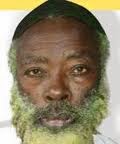Cameroonian writer Mbella Sonne Dipoko (1936 - 2009)
was mainly depicted as an erotic writer of sorts; whereas the simple truth is
that he was a very good novelist and poet.
His novels in particular disturbed a number of
critics, reviewers and readers because of the rather explicit sexual content
therein. That was way back in the 60s when some felt that a "serious,
committed African writer" should not dwell too much on such things.
As Paul Theroux suggested then decades ago, African
writers were supposed to write "about solid tribal wisdom, ghoulish
rituals and the inscrutable cruelty of colonialism - not to mention the
inclusion of semi-profound proverbs and the utterances of very old men with dry
skin and wizened faces."
Yet, even way back in the 60s (and early seventies)
other distinguished African writers wrote about sex in some detail in their
works; for example Ayi Kwei Armah (especially
in Fragments), Chinua Achebe (A man of the People), and even Soyinka. Naiwu
Osahon (in Sex is a Nigger) was more or less in a special class of his own.
A lot of hypocrisy has always surrounded sex, in general.
Nowadays many aficionados of literature would worry about some "explicit
sex" in published works; though of course even an acclaimed novelist like
Chimamanda Ngozi Adichie has been panned by some critics for "excessive
sex" in her works.
But back to
the 60s when Mbella Sonne Dipoko was at his peak as a writer. Unashamedly he
admitted that he personally loved sex, and enjoyed writing about it in his
well-written books. In a rather famous interview (with Cameroon Life magazine) Dipoko said:
“I became, for many years what you might call a
travelling lover, a dreamer searching for God between the women’s thighs –
those days, when I was at the height of my intimate powers.
“You had to see me! I was like an angel stuffing
recoilless erections into just where they are most needed – into the fleshy
folds of winter! But I did it with rosy summers too, and each divine thrust was
like stuffing your women with yet another trump card of desire! And, there was
no Aids stalking through the world just to scare sensible chaps off sex…”
Major works by Mbella Sonne Dipoko
A few nights and days (1966)
Because of Women (1969)
- By Theophile Ebounge




